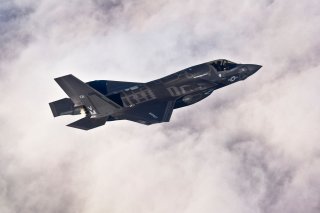Divided Elites: Where South Korea’s Engagers and Deterers Agree—and Disagree—About North Korea
There is more room for cooperation than U.S. observers might think, but fundamental disagreements remain strong.
All of this gets back to whether Seoul really does need constantly bigger and better weapon systems, such as the kind that could be used for taking out North Korean missiles or leadership. For example, Dr. John Delury thinks peace is possible, but that it requires a rethink that threatens vested defense interests. “The biggest threat to stability is peace. I saw, for example, in 2018 when there was real progress, both in the inter-Korean relationship as well as with the U.S. and North Korea. You could feel how peace is destabilizing, especially to the status quo. Both the Korean peninsula itself and the policy in the region is predicated on armistice, not peace.”
As a result, arms control “messes up agendas” and is unnerving when both countries are used to relying only on deterrence. “The North Koreans have figured out how to deter us, and we, meaning South Korea and the United States, have figured out how to deter the North Koreans.” But, Dr. John Delury pointed out, “If you seriously pursue peace, you have to change the status quo. You can’t just say, we want peace and we’re going to keep doing everything—we’re going to keep all our capabilities, defense spending, same military posture, and joint military exercises. You have to change that. You should change it, but do it knowing it is destabilizing. There’s a fallacy that peace is easy. You have to take risks and have some courage to get there.”
Yet ultimately, Deterers are more likely to say South Korea has tried all kinds of confidence-building measures, and any lack of progress is North Korea’s fault. They also contend that Seoul needs such military capabilities because they are the only way South Korea balances out Pyongyang’s nuclear weapons. Obviously, America’s nuclear weapons balance them out too, but if Seoul wants to secure itself, it needs serious conventional power. Dr. Min Gyo Koo explained it this way, “For North Korea, the bigger threat is the Korea-U.S. alliance, rather than Korean conventional capabilities. They don’t care. Their strategy is to throw a wedge between South Korea and the U.S. because they know they can defend themselves against the South Korean threat as long as they have nuclear weapons.” He went on to affirm that although denuclearization would be nice, that is something Washington cares about more than Seoul. For many Deterers, as long as South Korea has a good, advanced military and the alliance with America, it is okay if North Korea keeps its nuclear weapons because Pyongyang is deterred and so will never use them.
Editor’s note: John Dale Grover is a Korean Studies fellow at the Center for the National Interest. He visited Seoul for a week in early November 2019 to interview nine experts in South Korea for this project. This is the fourth piece in a five-article series, “How South Korea’s Politics and Military Impacts Strategic Stability with North Korea.” This series examines the two South Korean views—Engagement First vs. Deterrence First—over how to best interact with North Korea. The first piece introduces the problem of conflict escalation and stability in the context of North and South Korea’s militaries. The second piece looks at the Engagers’ point of view, and the third piece at the Deterers. The fourth piece sees where both groups agree and disagree, and the fifth piece concludes with how each side can help avoid a Second Korean War. Support for the reporting of this article was provided by a fellowship from Atomic Reporters together with the Stanley Center for Peace and Security and funding from the Carnegie Corporation, New York. The quotations in this article have been edited for length and clarity.
Image: Reuters

